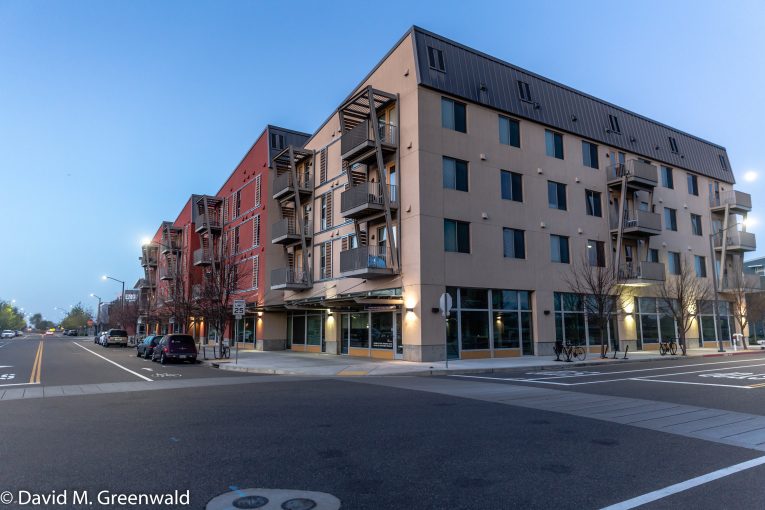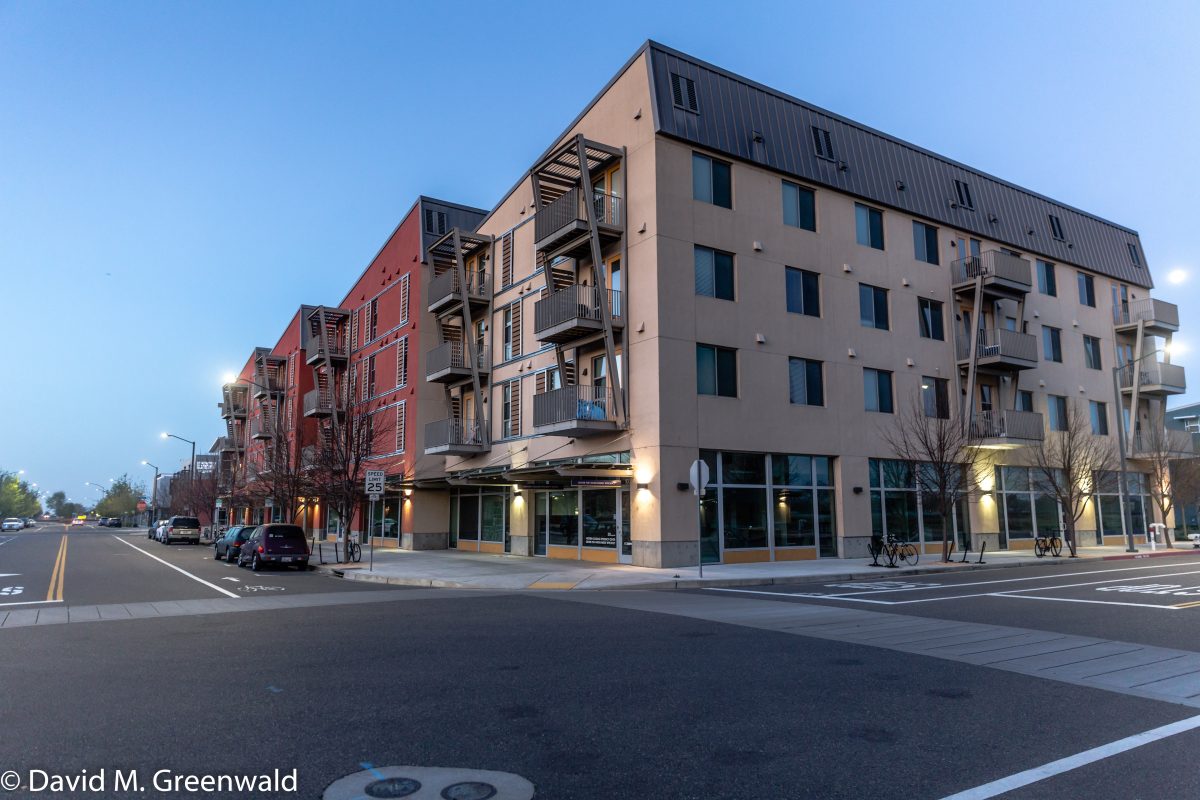

By David M. Greenwald
Executive Editor
Davis, CA – Last week Senator Scott Wiener introduced SB 886 to make it easier to build housing for students and faculty. In the wake of a court ruling that could force UC Berkeley to cut back on student enrollment, the timing is impeccable, though actually the legislation was not in response to the Berkeley situation.
Michelle Andrews is the Legislative Director of ASUCD at UC Davis. She told the Vanguard on Tuesday that she and students at UC Santa Cruz started working on SB 886 a couple of months ago and they connected with California YIMBY to do something on CEQA and student housing.
“The timing kind of worked out perfectly with the Berkeley lawsuit,” she said, noting that the efforts were actually underway well before the decision. “We definitely were not expecting that.”
She explained, “We had had the press conference scheduled for the 22nd (of February) for awhile and then the week before we didn’t even realize that the decision would be coming out the week before.”
would be coming out the week before.”
They did scramble after the lawsuit to bring some Berkeley people to speak at the press conference.
According to Andrews, who is also President of the UC Davis College Democrats, “In a nutshell, it’s going to make housing, a lot more accessible for students and faculty at all colleges in California.”
This is an effort to start addressing the large student housing crisis hitting not just Davis, but at all the colleges in California.
Andrews expressed concern about the homelessness rates among students.
“The UC homelessness rate is 5 percent,” she said. But it goes up to 10 percent for CSU and for “community colleges (it) is almost 20 percent, which is completely unacceptable.
“We know that more housing needs to be built,” she said. “But we also know that NIMBYs work really hard to get it blocked whenever it’s in their towns. So we wanted to kind of minimize the impact that NIMBYs are able to have on the construction of student housing by making this bill focused just on campus, so they can’t say hey, it’s not the city’s responsibility to build housing.”
Andrews added, “Housing is needed right now, not just in a few years. We know that the CEQA process holds it up for months if not years.” So, she said, “because we need housing right now, we want to get rid of that roadblock. And that’s what this bill does.”
In recent years, UC Davis has opened student housing at West Village, while Davis has opened Ryder and Sterling.
But Andrews said, “We are definitely still feeling the crunch.”
She noted, “A lot of the issues with private developments like Ryder and Sterling are that they are completely unaffordable for a lot of students.” Moreover, she said, “most students prefer to live on campus. Not only is it more convenient, you can walk to classes and get food on campus and all of that, but a lot of the times financial aid can help with housing costs on campus.”
She said “and a lot of people live on campus, so it’s a big appeal to stay on campus.”
She said, “So the outside developments are helping, but also nothing has changed in the sense of people are still having to sign leases in January to move in, in September. People are still paying insanely high rents. I believe the average rent in Davis went up in the last year and they’re having to battle with dozens of other students for the same house, if you want a house.”
The dynamic means that students, who start their college career as freshmen in late September, have to find housing just a few months later.
“You don’t know the people that you’re going to end up living with,” she pointed out. In some cases, they may have only known the person for a month. They end up signing to live with them nine months later, “and then the relationship changes and they’re stuck living with these people because they signed it so far ahead of time.”
Or even worse, “your financial situation changes… but you’re now tied to a lease in September that you can’t really do anything about it.”
Michelle Andrews believes that the problem of student homelessness is actually underreported.
“The 5 percent of UC Students are homeless, that doesn’t necessarily mean the people that you were talking about that are living in their cars or sleeping on their friend’s couches,” she said. “The definition of homeless that the universities use is very narrow. I don’t think we know the whole scope of how bad it is.”
She added that “11 percent live in hotels or transitional housing. That’s on top of the five percent that are homeless. I think a lot of students are ashamed of their situation and so they don’t want to share it. But we do know that housing costs are something that are a huge barrier for students and if they aren’t able to afford their rent, then yeah, they just have to resort to living in their cars without anyone knowing.”
With regard to SB 886, Michelle Andrews pointed out “our goal with this bill isn’t to decrease the environmental quality of student housing.”
She noted that many CEQA lawsuits attempt to frame the issues as revolving around the environment, but she says that’s not the case.
She noted that even with this bill, “campuses will still have to undergo CEQA for their long-range development plans, and so nothing will really change in terms of the environmental footprint of student housing.”


Never a good way to start an article and also keep my lunch down . . .
The most insidious (should I say salacious?) thing that developers have morphed liberal college students from anti-developer environmentalists into pro-developer growth advocates. Brilliant! (Brilliant in a Trump commending Putin sort of way)
But the Berekeley lawsuit is about off-campus, the Weiner bill is on-campus housing, correct?
The week before the before time.
YIMBYs! (wanted to use YIMBY as a pejorative, in response to below)
If there are places to put stuff on campus. Stuff being housing.
The C-word.
$100 bet it’s the same after the on-campus housing is built, in 2030.
So if this is true at UC Davis, and it must be because Davis is having a “crisis”, that means there are 1750 cars with students sleeping in them in the Safeway parking lot?
. . . and completely unbelievable.
NIMBY as a pejorative.
Technically speaking, builders build housing, developers finance the building, sometimes (and increasingly) with subsidy.
I just saw the new population projections from CA DOF. It shows growth flattening to a max, not as previously on a constant increase.
Just like that LA Sports stadium that got exempted . . . for some reason . . . cuz the guv’nor said so.
Yes they have.
But it would have been crunchier if not for those efforts. So less crunchy is good, no?
When I took the tour of Lincoln40 (Ryder Truck Rentals), they told us the rents, and they seemed surprisingly reasonable for Davis, especially for what they offer.
Wow that’s a change from when I went to Davis.
I didn’t know it made a difference. Learned something important there. But aren’t housing prices higher on campus, and pretty comparable once you factor in the free gourmet dining commons food? (I’m sure that’s debatable on several levels, and will be debated)
Well, I think the ‘no growthers’ in Davis who feel student housing should be built on campus fully agree with you. So where is the conflict. Also, some students have loudly claimed that Davis residents are “anti-student”. So if there is an appeal to “stay on campus” then everyone is happy, right?
Less crunchy
As has long been the case. Though you can still find exceptions to that if you go outside the usual channels.
True.
It’s been that way for a long time. If you think it’s bad here, try UC Berkeley or UC Santa Cruz. Make Davis look like a cake walk. BTW, how are the “crisis” conditions in Merced?
That is a dynamic that sücks when it happens. Been there, done that. True, the timelines are much worse these days. But there is now rent-by-the-bed, so you can now live with total strangers.
That reality hasn’t changed.
More than 1750 cars in the Safeway parking lot?
Oh, couches count.
So what is the wider definition?
That’s not homeless. It does sück.
It would be fruitless not to, since CEQA is environmental law.
So if you checked the box that asked if you as a student has ‘spent at least one night on a friend’s couch’ does that make you count as homeless? Does that make you part of the “crisis”?
As I understand it, it would not. With some caveats it might count as housing insecure, but it would have to be due to not being able to afford housing.
You can see the UC questionnaire – https://regents.universityofcalifornia.edu/regmeet/jan20/s3attach.pdf
That’s a change from what we regularly-hear on the Vanguard.
Of course, they also claimed that working professionals (not just full-time students) would be living in the megadorms off campus.
In any case, what would Dan Carson think about the elimination of CEQA requirements for campus housing, given his previous “interest” in the subject?
Other than occasional lawsuits (such as the one that Dan Carson was a party to – in regard to impacts outside of campus), is there any actual evidence that CEQA requirements are preventing on-campus housing from being built?
And if there is some nominal savings in eliminating CEQA requirements on campus (e.g., per development), is there any evidence that savings would be passed-on to students?
Given that California YIMBY (and Wiener) is involved, have they actually analyzed this?
Curious as to the impacts of developments proposed “near” campus, as well. (In other words, how it would impact “their” EIR analyses, if “anything goes” – e.g., across the street from their proposed development.)
By the way, did the lawsuit that Dan was a party to actually prevent housing from being built on campus?
I don’t think so, though UCD apparently did drop its “innovation center” proposal on campus as a result.
But hey, why ask questions, right?
Probably easier just to call them a bunch of student-hating NIMBYs. Even though it’s the university system that’s creating the situation, not the students OR the neighbors.
Of course, it doesn’t help with credibility when some of the students work directly for developers (and their public relations firm).
Also curious as to whether or not ANY of the College Democrats believe that limiting enrollments (and/or encouraging more to attend campuses such as UC Merced) are useful, given their stated concerns regarding housing shortages. (Or more accurately, “housing affordability”.)
Especially since a lot of the students that UC recruits aren’t from California (or the United States, for that matter).
Again, college enrollments (overall) are DECLINING. And the “feeder system” (K-12) is declining, as well. There was an article today regarding layoffs that will be implemented in San Francisco’s school system, due to drastically-declining enrollment.
Also would like to know if they’re concerned about developments such as DiSC, given their stated concerns regarding climate change.
Somehow, their talk doesn’t seem to consistently match their walk.
Oh, snap! The YIMBY’s lose one. Apparently, Wiener hasn’t yet been able to ensure that his cronies taker over the court system:
https://www.latimes.com/california/story/2022-03-03/uc-berkeley-could-be-forced-to-cut-enrollment-by-3-050-seats-under-high-court-decision
Will those concerned about “housing shortages” now celebrate? Probably not, since that’s apparently not what they actually care about.
By the way, who (exactly) spread the “fear” that is referred to in bolded text, above?